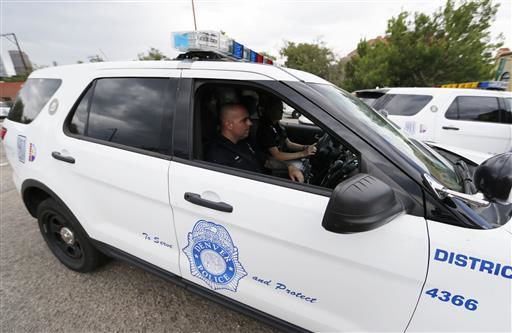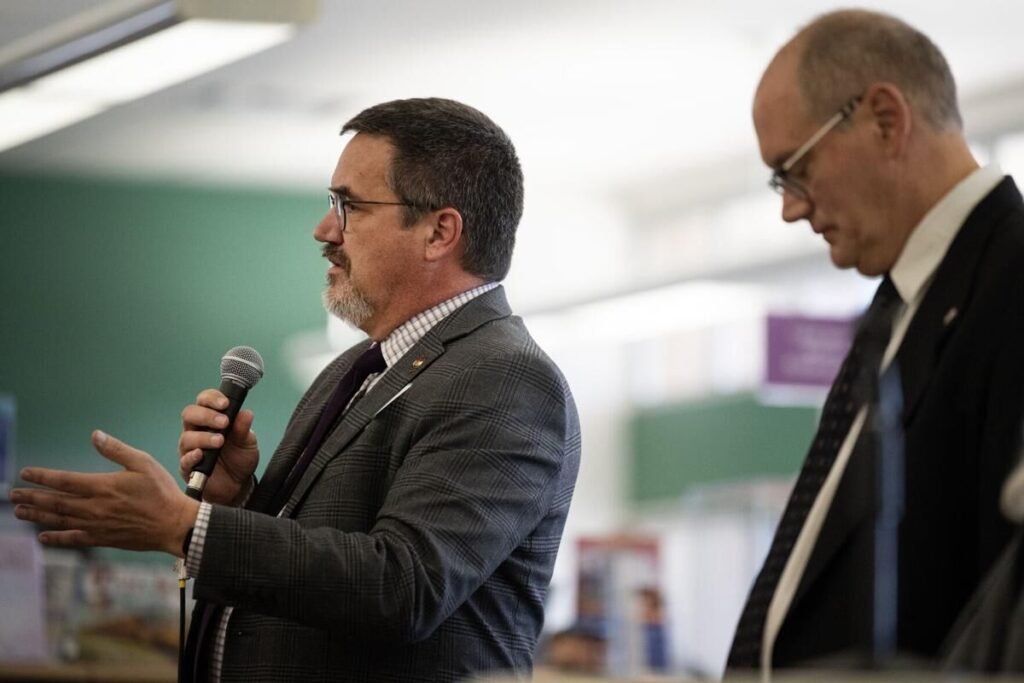Building trust in law enforcement top of mind at independent monitor finalist forums

How to address racial inequities in policing and building trust in law enforcement among people of color and religious communities were some top questions for finalists for Denver’s next top police watchdog by participants in public forums this week.
The conversation shouldn’t “just include African American racism versus the police,” said Dana Walton-Macaulay, one of the finalists. “It also includes immigrants and houseless people, and it includes all of the facets of humanity that have been ignored and silenced and not seen by the police in the system because the system was built not to see them.”
Walton-Macaulay is currently the deputy director of the Portland, Ore., Independent Police Review, the police oversight branch of the city auditor’s office.
Denver’s Citizen Oversight Board, which has responsibility for appointing the head of the Office of the Independent Monitor, co-hosted a pair of public forums Wednesday and Thursday with a handful of community organizations, including the Greater Metro Denver Ministerial Alliance, Together Colorado, the Denver Alliance for Street Health Response (DASHR) and Servicios De La Raza.
The OIM monitors investigations of Denver’s safety officers, including shootings, in-custody deaths and probes that turn into criminal investigations, and makes recommendations about discipline and policy to the manager of safety. The agency also monitors investigations of citizen complaints about misconduct such as improper use of force, discrimination and retaliation.
The Citizen Oversight Board hopes to appoint the next monitor by April. In addition to Walton-Macaulay, the finalists include Robert Booth of Denver and Joseph Lipari of Boulder. Lipari has served as Boulder’s independent police monitor since 2020, the first person to hold that position in the city. He previously worked as a deputy inspector general for public safety in Chicago.
Booth works in the attorney general’s office as an assistant deputy attorney general for criminal justice and is the director of the Medicaid Fraud Control Unit.
The last person to head the OIM, Nick Mitchell, stepped down more than a year ago to take another position. Gregg Crittenden has served as interim monitor since.
Shortly before Mitchell resigned, his office did a special investigation in summer and fall 2020 into Denver police’s handling of racial justice protests, finding the department misused less-lethal force tactics and at times acted anonymously without body-worn cameras.
Lipari said Thursday night he believes the next monitor’s first undertaking should be making a follow-up report to that investigation to ensure better training, supervision and accountability procedures in the Police Department. He said he thought the report’s explanation of less-lethal weapons in a way that was understandable to the public was one of its strengths.
“I think it’s probably only a matter of time before we have another demonstration of some sort where these questions will be examined again, and I would like to get on that sooner rather than later and not wait for another bad reaction in response to the demonstrations to occur,” he said.
The candidates each said they support programs that provide an alternative to police responses. But when asked whether they would support moving money away from the Police Department’s budget to alternative response programs, all declined to give a firm yes or no.
Booth said he admires the mediation program managed by the OIM set up to facilitate an alternative option for people who file complaints against the police and sheriff departments. Training for officers is necessary, he said, but he believes it’s important to pair it with one-on-one conversations with members of marginalized communities about their experiences being policed in Denver.
“When you have these difficult conversations, I’ve found that it’s most often more productive, rather than sending an officer just to training, giving that officer the ability to sit down and talk to a member of the community and hear their viewpoints and say this is how I as a Black man navigate in Denver; this is how I view things; these are my experiences,” he said.
A poignant moment came at the end of Wednesday’s forum when each candidate admitted they did not know who Paul Childs was. Childs was a teenager with a developmental disability whose killing by Denver police officer James Turney in 2003 led to the OIM’s creation.
“He’s important to us, so we appreciate you taking a moment to look him up,” said Elisabeth Epps, founder of the Colorado Freedom Fund and a current state legislative candidate. “And we thank you for your time tonight.”














